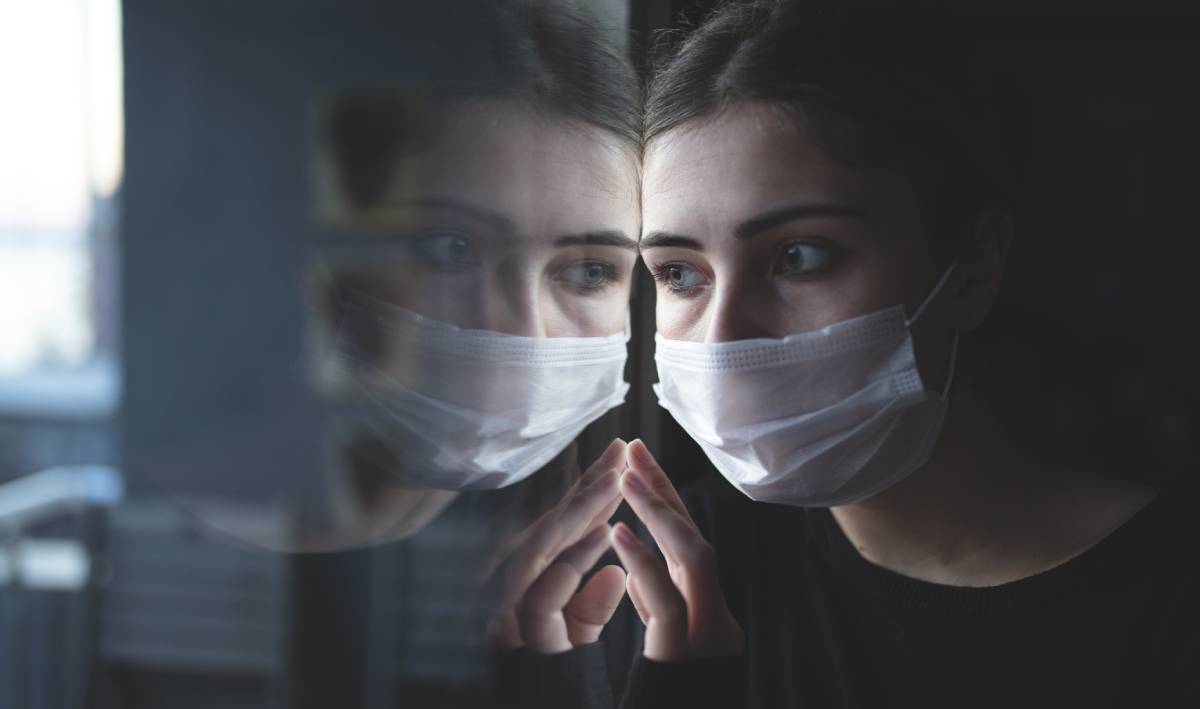Interactions between COVID-19 and Mental Health Disorders

The COVID-19 pandemic and subsequent lockdowns have understandably had adverse effects on mental health. Research on the interactions between mental health, mental health adjacent issues, risk factors, and COVID-19 is a critical component of managing the pandemic and the recovery period afterward.
A Lancet study posed the following 2 questions: In addition to the well-known physical risk factors, does COVID-19 have any psychiatric risk factors? Is there an association between a COVID-19 diagnosis and a subsequent psychiatric diagnosis? [1] Using a retrospective cohort study of electronic health records, they examined the incidence of being diagnosed with a psychiatric disorder in the 14-90 days following any of 7 common health events, such as the flu or COVID-19. Relative to the other 6 health events, they found that COVID-19 is associated with an increased rate of a subsequent first psychiatric diagnosis [1].
Independent of known physical health risk factors, researchers also found that “psychiatric diagnosis in the previous year was associated with a higher incidence of COVID-19 diagnosis” [1]. Some limitations of this study are that it included only patients who were clinically diagnosed and that there may have been confounding socioeconomic factors. However, overall, “COVID-19 survivors have significantly higher rates of psychiatric diagnoses, and psychiatric history is a potential risk factor for being diagnosed with COVID-19, independent of known physical risk factors” [1].
In light of this, a major public health concern is COVID-19’s impact on existing mental health services. A World Health Organization survey of 130 countries found that 93% of the countries reported a disruption to at least one mental health, neurological, or substance use (MNS) service [2]. Simultaneously, demand for these already limited services is increasing. Thirty-five percent of the countries also reported disruption to emergency MNS services, such as severe substance abuse withdrawal services; thirty percent of countries also reported issues in supplying medication to people with MNS disorders [2].
Finally, COVID-19 has also particularly affected children and those who attend school. Almost 75% of school mental health services have been either wholly or partially disrupted [2]. As children and young adults are in important stages of cognitive and social development, COVID-19’s long-term impact on their mental health will be an important area of research moving forward. Indeed, even beyond the current effects of increased clinginess, fear, inattention, and irritability, the closure of schools is projected to have a long-term negative effect on children’s overall psychosocial wellbeing due to a predicted difficulty reintegrating into reopened schools [3]. A synthesis of extant literature related to children’s mental health and the pandemic identified the following especially impacted groups: young children, those attending school, children with preexisting mental health challenges or special needs, economically underprivileged children, and children immediately affected by quarantine of either themselves or a family member [3].
A systematic article review about COVID-19 and mental health of the general population identified the following risk factors as being associated with significant levels of COVID-19 related psychological distress: female gender, age less than 40 years, presence of chronic/psychiatric illnesses, unemployment, student status, and frequent exposure to social media/news concerning COVID-19 [4]. Particularly within the US, race, gender, and other factors are heavily associated with economic status, so this is unsurprising — many of these factors would have affected mental health disproportionately for many of these groups even without COVID-19 [5]. On the whole, COVID-19 interacts with mental health in numerous and complex ways.
References
1. Taquet, M., Luciano, S., Geddes, J. R., & Harrison, P. J. (2020b). Bidirectional associations between COVID-19 and psychiatric disorder: retrospective cohort studies of 62,354 COVID-19 cases in the USA. The Lancet Psychiatry, 1–11. https://doi.org/10.1016/s2215-0366(20)30462-4
2. Geneva: World Health Organization. (2020). The impact of COVID-19 on mental, neurological and substance use services: results of a rapid assessment. World Health Organization. https://www.who.int/publications/i/item/978924012455
3. Singh, S., Roy, D., Sinha, K., Parveen, S., et al. (2020). Impact of COVID-19 and lockdown on mental health of children and adolescents: A narrative review with recommendations. Elsevier: Psychiatry Research, 293, 113429. https://doi.org/10.1016/j.psychres.2020.113429
4. Xiong, J., Lipsitz, O., Nasri, F., et al. (2020). Impact of COVID-19 pandemic on mental health in the general population: A systematic review. Journal of Affective Disorders, 277, 55–64. https://doi.org/10.1016/j.jad.2020.08.001
5. Williams, D. R., Priest, N., & Anderson, N. B. (2016). Understanding associations among race, socioeconomic status, and health: Patterns and prospects. Health Psychology, 35(4), 407–411. https://doi.org/10.1037/hea0000242
